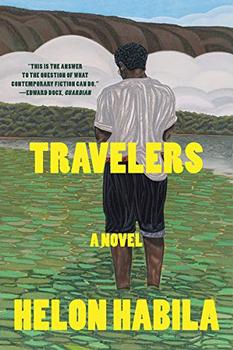Summary | Excerpt | Reviews | Beyond the book | Read-Alikes | Genres & Themes | Author Bio

Mumbai Stories
by Jayant KaikiniIn No Presents Please, a loosely connected collection of short stories, Jayant Kaikini deftly navigates the lives of what might otherwise be invisible people in and around Mumbai. Their world is one marked by alienation and loneliness, but also hope and joyful connection. With an empathetic eye and evocative language trained on the ubiquitous qualities of the human experience, Kaikini guides readers to a sense of community and connection with his characters.
In story after story we meet characters who have given themselves over to their solitary existences only to have them unexpectedly disrupted by moments of communion. Early stories like "Unframed," "Opera House" and "City Without Mirrors" all feature single men in the second half of their lives who are startled into long-buried feeling and action. Kaikini uses stories such as these to belie the notion of manhood rooted in traditional markers like "father" and "husband"; instead, these men often claim smaller, more obscure human identities like "neighbor" and "co-worker." Gangadhar of "Unframed" owns a shop that garners most of its business framing photos of the dead. It's only after the onset of violent riots in the city that he can connect, even tangentially, with others living around him. Having been urged by his largely absent mother to collect items for the victims of the riots, he begins to imagine one in particular, with "a sliver of a smile...slipping out...wearing Gangadhar's blue shirt." Similarly, in "Opera House," Indranil has just one connection to the outside world: "Like a soundless spider without any great expectations, Indranil wove his small world around the Opera House theater." That is, until someone leaves a thermos in the theater and Indranil develops a great sense of urgency in exploring the city to find its owner.
Ironically, in "City Without Mirrors, it's the presence of mirrors that gives readers the best sense of these unconventional relationships. Satyajit has given up on the notion of human connection. He despairs that the street boy he passes on his way home, the boy's negligent father, and the sex workers in the area are all "part of the same universe." However, as Satyajit explores new and unexpected companionship, he notices the city's mirrors. "These public mirrors, which included everyone in their reflection, seemed like the friendships among strangers bred in the city. They were all familiar with one another in the saloon, even if they didn't know one another." What's significant in this moment and in the collection is a notion of seeing one another and recognizing common humanity.
Though most of his stories revolve around men, Kaikini's work also features a few stand-out women. "Inside the Inner Room" and "Mogri's World" are two of the more emotionally complex stories in the collection. Both continue the theme of estrangement and alienation while highlighting some of the simultaneous burdens women face. They are overworked, overlooked and suffer from varying degrees of sexual exploitation. In "Inside the Inner Room," Meera's husband, Anatariksh, suddenly brings home another woman, Parul. However, in this universe, what might normally be perceived as an outrage serves to bind the women together instead of pitting them against one another. Parul insists on calling Meera "sister" from the moment Anatariksh brings her home. And it is Meera who later tends to Parul when she has surgery. In "Mogri's World," the beautiful title character uses access to sex (her "secret treasure") to carve out a powerful place in her scary world.
Beyond its attention to class and gender dynamics, one of the most striking features of the collection is the author's use of seemingly recurring characters. On a first read, these stories are engaging, yet entirely discrete slices of life. However, Kaikini draws the collection together, heightening the sense of connection and community with the reemergence of approximate characters across stories. The dirty street boy looking for his father in "City Without Mirrors" is eerily similar to the little boy whose father drops him off in "A Spare Pair of Legs." A vaguely menacing tea boy, Popat, in "A Spare Pair of Legs" appears again as a nervous fiancé in the title story, "No Presents Please." The overall effect is so cohesive that even "lighter" stories like "Dagadu Parab's Wedding Horse," take on more emotional weight as Dagadu reemerges, for example, in the more poignant "Mogri's World."
Kaikini covers quite a bit of ground with this collection and not every story is a standout. However, No Presents Please embodies a definition from the blog Dictionary of Obscure Sorrows that I've come love. Sonder is "the realization that each random passerby is living a life as vivid and complex as your own — populated with their own ambitions, friends, routines, worries and inherited craziness." This is the collection's great contribution and achievement. It's well worth a read.
![]() This review
first ran in the August 5, 2020
issue of BookBrowse Recommends.
This review
first ran in the August 5, 2020
issue of BookBrowse Recommends.

If you liked No Presents Please, try these:

Djinn Patrol on the Purple Line
by Deepa Anappara
Published 2021
In this transporting debut novel, three friends venture into the most dangerous corners of a sprawling Indian city to find their missing classmate.

by Helon Habila
Published 2020
A startlingly imaginative exploration of the African diaspora in Europe, by one of our most acclaimed international writers.
Your guide toexceptional books
BookBrowse seeks out and recommends the best in contemporary fiction and nonfiction—books that not only engage and entertain but also deepen our understanding of ourselves and the world around us.